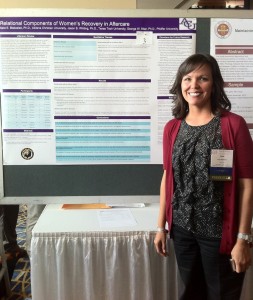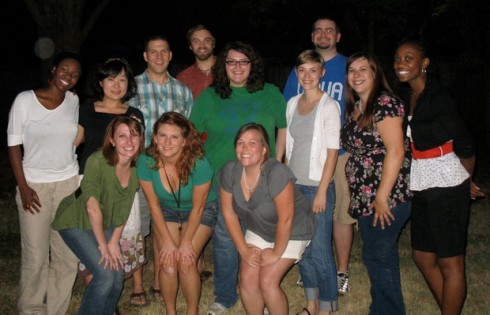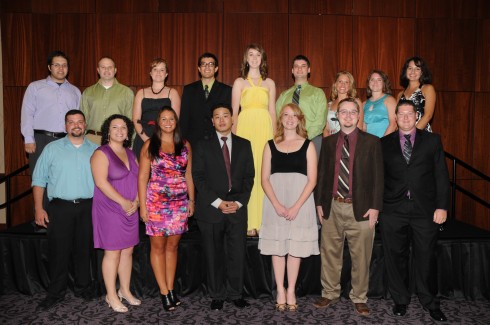In two recent highly publicized cases, one at Augusta State University in Georgia and the other at Eastern Michigan University, judges ruled in favor of both universities after they dismissed graduate students in their counseling programs who refused to treat homosexual clients. In a recent newsletter, AAMFT summarized the cases and encouraged members to engage in dialogue around this issue. One of our current 2nd year students, Scott Rampy, offered his perspective on this ethical dilemma on AAMFT’s Community Forum. Here’s what he had to say:
To the readers of this forum, I would like to contribute to this conversation as one from a potentially uncommon vantage point. I am a Christian, have an undergraduate degree in youth ministry, am planning a career with dual focus in congregational ministry and MFT, and am a master’s level MFT student at a Christian university. I would like to respond both in terms of my ever-evolving personal theory of practice regarding this issue as well as in terms of the broader realm of practice in our field.
As students training for a profession in which empathy for the other is the highest ideal, this highly charged debate offers an excellent opportunity for us to demonstrate the fruit of our training and our merit as future professionals. It is undeniable that the issue of sexual orientation is a polarizing one in our society. Well intentioned and highly intelligent people come to diverse conclusions on this issue. National and state governments and courts are engaged in a seemingly never-ending struggle to resolve the issue for themselves – and come to differing conclusions. Even within individuals, as Ms. Walker noted herself, the issue raises conflicting questions. Therefore, rather than joining with the polarized rabble, let us have empathy for the diversity of opinions honestly achieved.
My personal theory of practice with LGBTQ clients is no different than for heterosexual clients – the goal is for peace to be present in their lives. My personal belief is that all humans have an obligation towards sexual morality; that is, sexuality expressed within monogamous heterosexual relationships. However, when it comes to practice with clients of an alternative perspective, my goal remains to find how I can allow myself to be used by them to achieve whatever level of peace (shalom) they are seeking in their lives.
In regard to the broader issues broached by these court decisions, I am surprised by the intolerance for the personal beliefs of both clients and therapists alike. My understanding of the LGBTQ community is that a major tenet is honoring diversity of personal belief. This leads me to surprise at the intolerance for the personal beliefs of these two student therapists. It is unfortunately true that Christians are often guilty of this same kind of intolerance for diversity of belief. However, nothing is gained when either group lowers its own practice to the failings of its detractors. If tolerance of the other is a goal, one must be the first to model it towards the other.
Second, in regard to the decisions of the judges in these students’ cases, one’s personal beliefs are not abstract ideals limited to the realm of theoretical thought. What one believes has direct bearing on how one lives. To offer an overly simple example, if one believes the temperature will be below zero and one values warmth, one does not wear flip-flops and shorts. Belief determines action. If not, it is entirely reasonable to question whether it is a belief honestly held. Contrary to the opinions of the judges in their rulings, I submit that to separate belief from action is in fact to deny one their belief. Though it may not have been stated by their university that the students had to give up their personal beliefs, forcing action contrary to beliefs is to force the relinquishment of belief. Specifically, if the students believed they would be living immorally if encouraging the union of homosexual clients, how do they hold onto this belief and practice counter to it as suggested? A good contribution to this discussion would be for someone to operationalize what this proposed separation of belief and action looks like while upholding one’s personal beliefs.
Third, on a similar tone, is it possible to practice therapy devoid of one’s own worldview? How does one leave at the door all the ways they have been shaped by culture, experience, family of origin, education, race, gender, ethnicity, sexual orientation, religion, etc? What is left to bring into the room? These all contribute to the way we relate with our clients, from the way we think, to the questions we ask, to the emotions we feel when we are with them. Doubtless many of us appreciate the contributions of seminal influences in our field – Minuchin, Haley, and Beck to name three. Yet for each of their models of therapy (Structural, Strategic, and CBT respectively), it is the therapist who makes a determination of functional and dysfunctional family structures, hands down paradoxical interventions to facilitate change from dysfunctional to functional behavior, or challenges cognitive distortions, automatic thoughts, beliefs, attitudes, expectations, and assumptions. In systems such as these, it is impossible for the therapist to fulfill their role devoid of their own worldview.
In regard to our own code of ethics, we can also appreciate the ambiguity present and the possible differences in decisions, such as were enacted by the students under discussion. Specifically, compare 1.1 with 1.10, 1.11, and 3.4 (provided below).
1.1 Marriage and family therapists provide professional assistance to persons without discrimination on the basis of race, age, ethnicity, socioeconomic status, disability, gender, health status, religion, national origin, or sexual orientation.
1.10 Marriage and family therapists assist persons in obtaining other therapeutic services if the therapist is unable or unwilling, for appropriate reasons, to provide professional help.
1.11 Marriage and family therapists do not abandon or neglect clients in treatment without making reasonable arrangements for the continuation of such treatment.
3.4 Marriage and family therapists do not provide services that create a conflict of interest that may impair work performance or clinical judgment.
Article 1.1 specifically mentions sexual orientation as a category for non-discrimination. However, in 1.10, if personal values are not appropriate grounds for inability or unwillingness, it needs to be made clear what do in fact qualify as appropriate reasons. In 3.4, the students experienced a conflict of interest with their professional role and their personal beliefs. 3.4 mandates that they not provide services that impair their own performance or clinical judgment, while 1.10 and 1.11 mandate that they do provide their clients with alternative opportunities for care. While it is very likely that some readers may still disagree with the conclusions reached by the students, surely it is understandable how they could have made their decision believing that they were operating within the AAMFT Code of Ethics.
We have before us an opportunity for empathy in the face of a situation which commonly results in polarization, a true test of our mettle as persons and professionals who value deep understanding of the decisions of others. Empathy in a situation such as this will allow those on both sides of the issue to acknowledge the complexities of the issue and promote conversation that builds toward agreement rather than separates towards opposition. It is with such a positive tone, which I appreciate and respect, that Ms. Walker opened this discussion. Is there room for the same valuing of the differing opinions among our colleagues to allow for the differing decisions of practice as exhibited by the two students under consideration?




 The first week of classes kept everyone busy. First year students were hard at work going over syllabi, learning about desk duty, and writing up their first observations. Second year students were excited to begin classes with less than a year left until graduation.
The first week of classes kept everyone busy. First year students were hard at work going over syllabi, learning about desk duty, and writing up their first observations. Second year students were excited to begin classes with less than a year left until graduation.